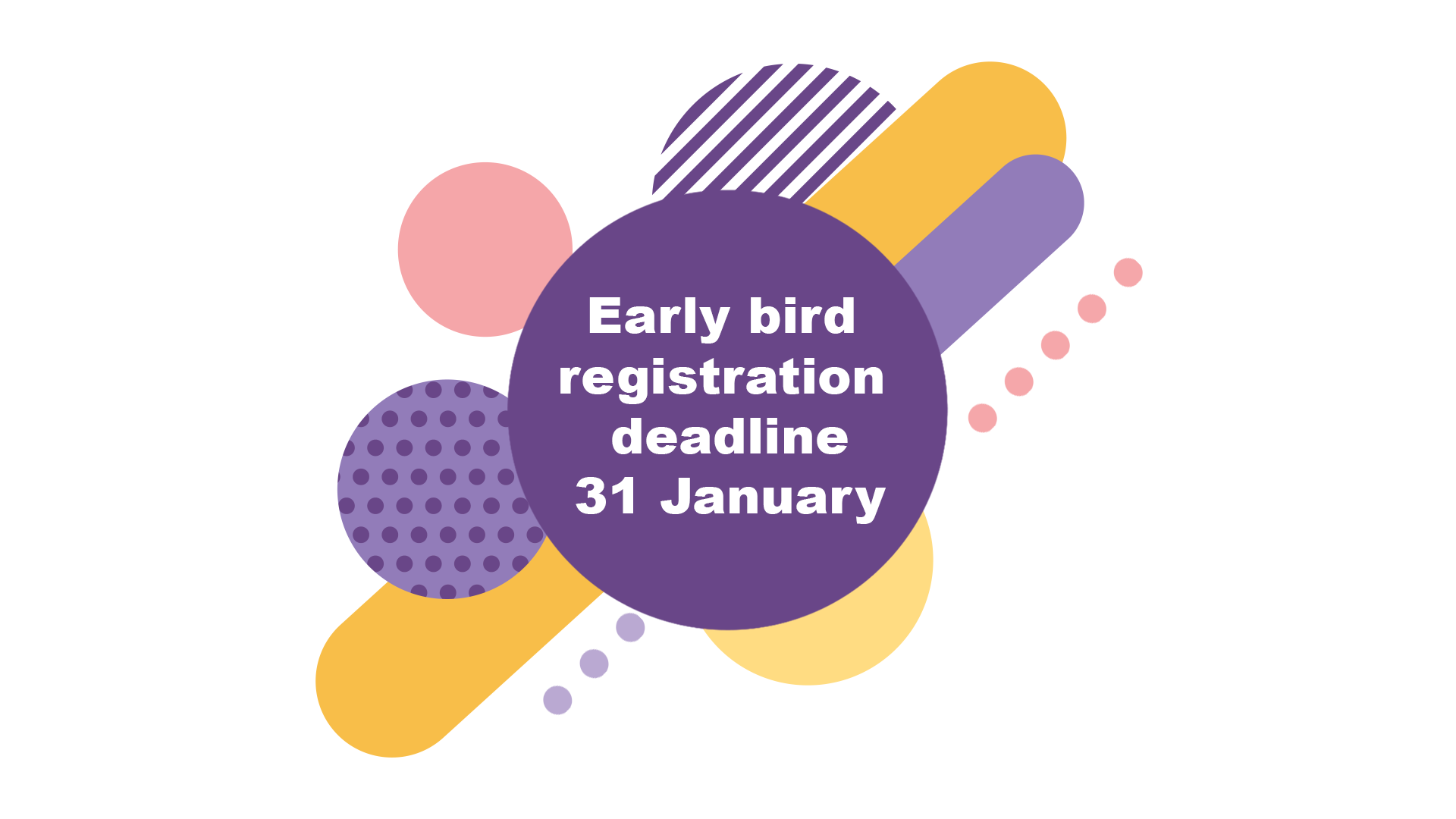

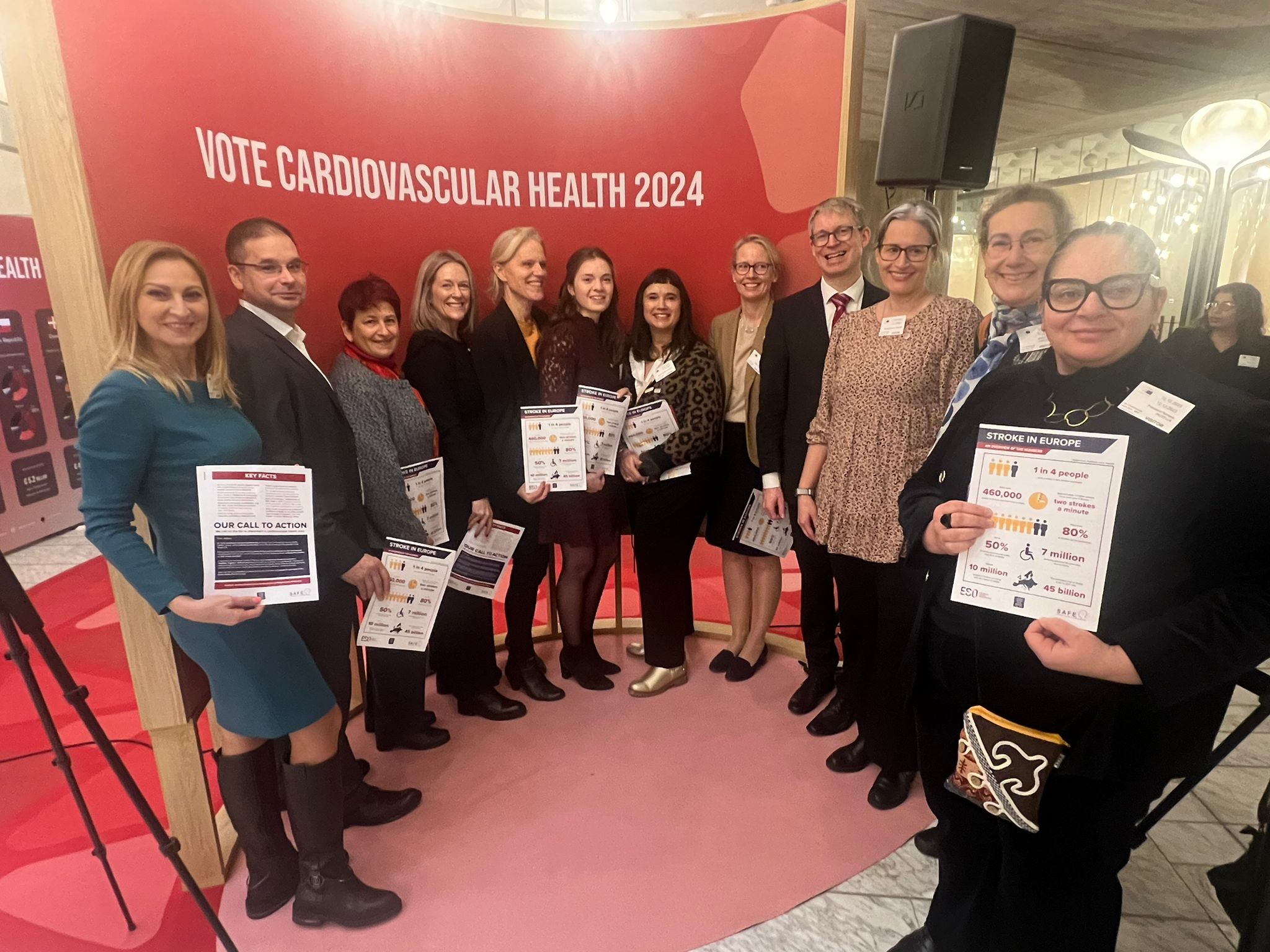
SAFE members calls for EU to implement CVD health plan
Last week saw five SAFE members travel to Strasbourg to join the European Alliance for Cardiovascular Health (EACH) and European Stroke Organisation (ESO) to come together to jointly advocate for population-wide access to cardiovascular risk assessments and care pathways that focuses on individual patients needs and goals. SAFE and ESO have committed to ensure that any EU CVH plan will also include the principles of the Stroke Action Plan for Europe.
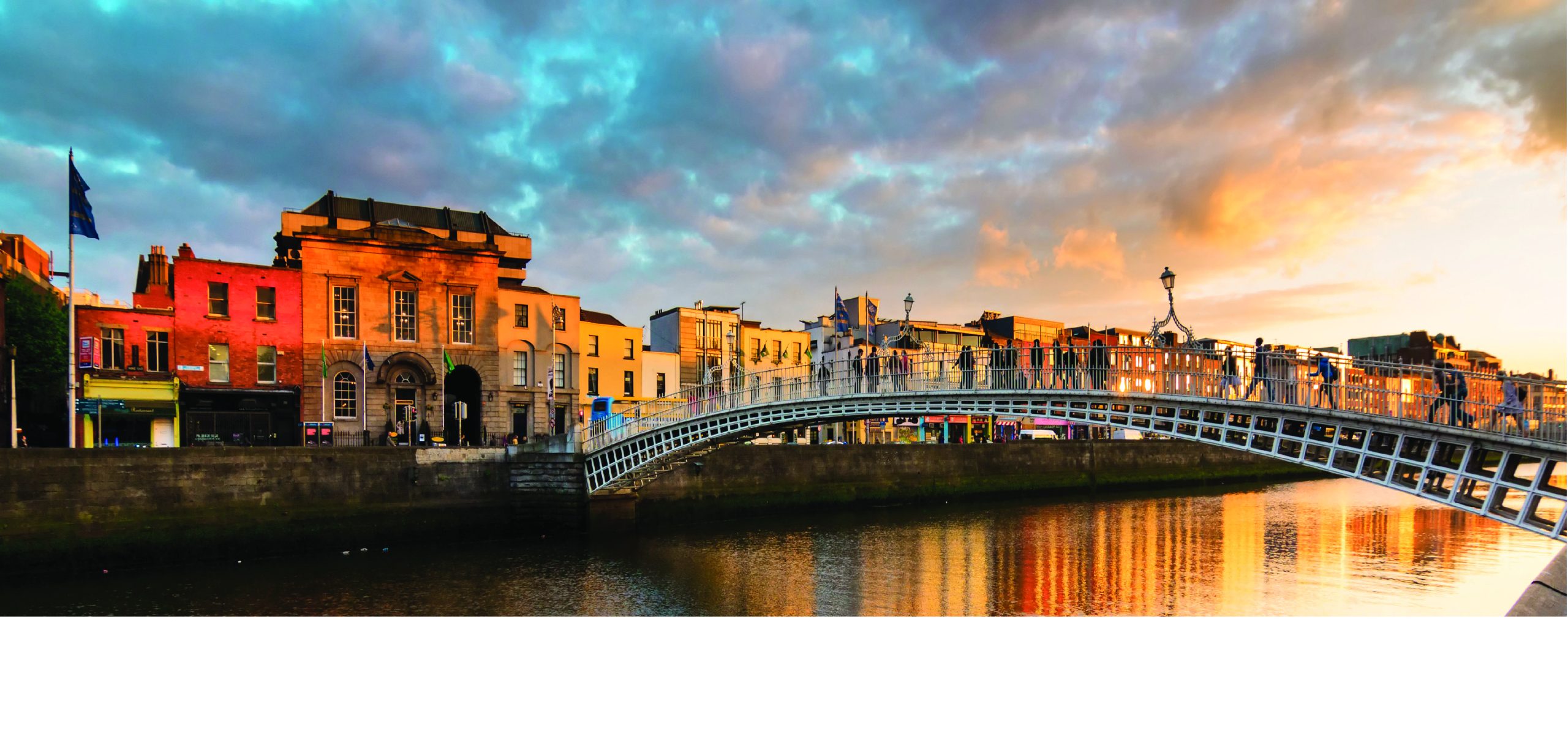
European Life After Stroke Forum 2024 – Programme now LIVE
We are so pleased to announce that the programme for our European Life After Stroke Forum is now live on the website. Our 2024 event in Dublin promises to be a vital platform for sharing insights, discussing the latest research, and delving into best practices in this often under-researched area.
Our plenary topics are:
Plenary 1 – Building the evidence for support for life after stroke
Plenary 2 – Life after stroke – Support in action
Plenary 3 – A showcase of life after stroke from Ireland
Topics for parallels
- A disproportionate burden? Life after stroke in women.
- Spasticity: What is it and how can we manage it?
- A vision for vision after stroke
- No decision about me without me – speaking together with one voice
- Exploring mental health post-stroke
- Secondary stroke prevention: Managing blood pressure and the benefits of exercise.
To access the full programme, click here.
To register for the event, click here.
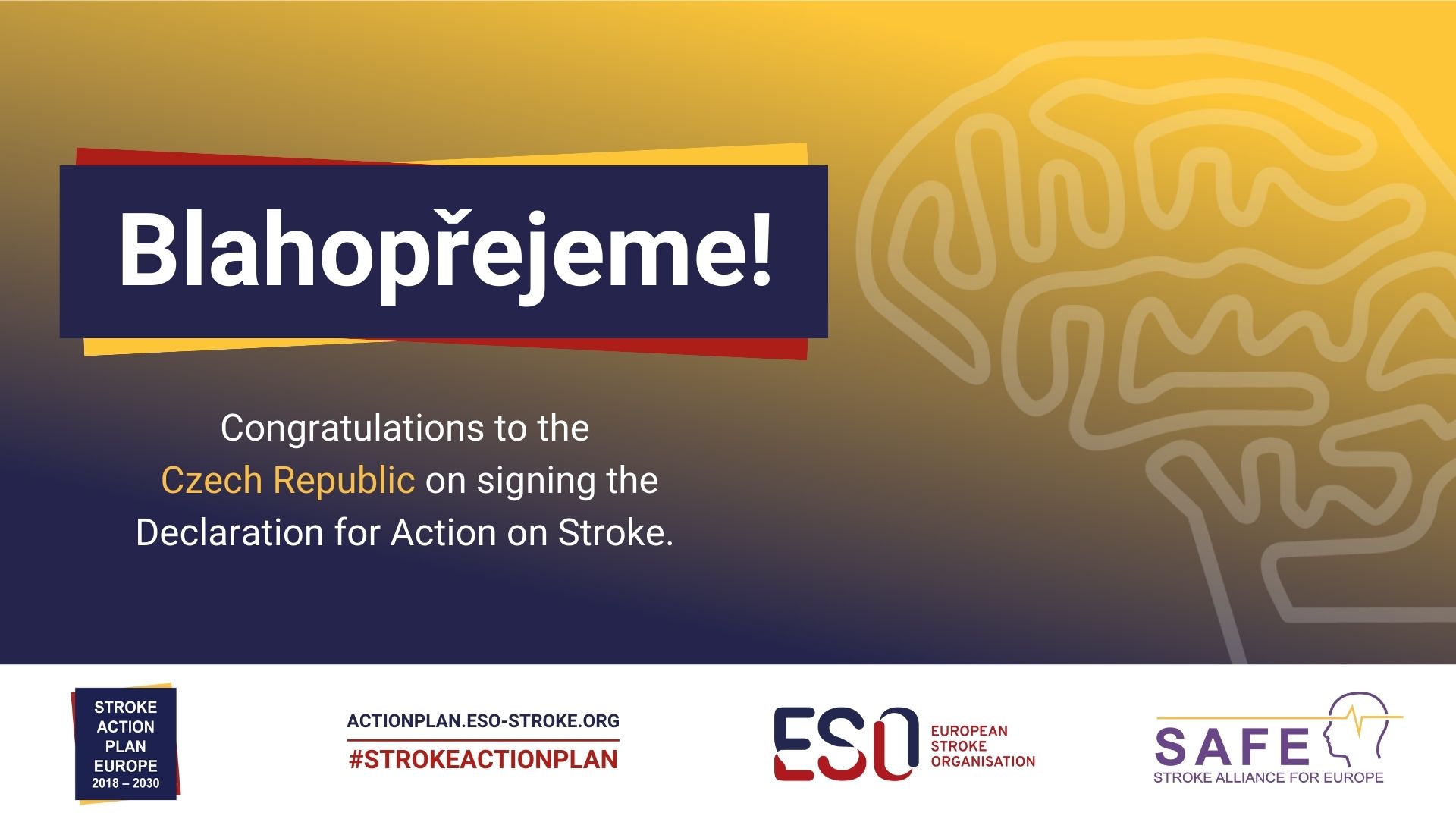
The Czech Republic signs the Stroke Action Plan for Europe declaration
We are very pleased to announce that the Czech Republic is the 13th country to endorse the Declaration for Action on Stroke and enact the Stroke Action Plan for Europe, bringing the country another step closer to guaranteeing the highest standard of care and support for stroke patients.
To find out more about the Stroke Action Plan for Europe, visit the SAP-E website

Brain innovation days in Brussels 26-27 October
The 3rd edition of the Brain Innovation Days team will take place on 26-27 October 2023 in Brussels (Belgium) under the overarching theme “The Brain in the 21st Century”, centred around building resilience and better brain health for future generations and increasing our brains’ readiness to adapt to an ever-changing environment.
- Resilient Brains: The Impact of Political, Societal, and Environmental Factors
- Boosting Brain Health and Preventing Brain Disorders
- What’s New? Innovative devices, substances and medicines for brain disorders
- The Self-Healing Brain: Use it or Lose it
- Towards a Brain Healthy 22nd Century
Sessions will include Brain Talks, How-To, sponsor-led satellite sessions, brain innovation days pitch competition, panel discussions with leading experts, an innovation hall and plenty of networking opportunities. To find out more, view the programme here.
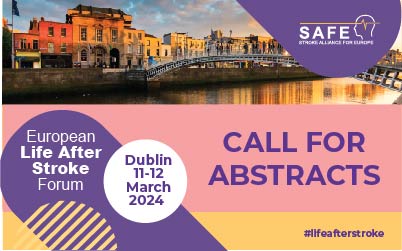
Call for abstracts for the 2024 European Life After Stroke Forum
The European Life After Stroke Forum (ELASF) brings together people from a research, policy, advocacy and support perspective with people who have lived experience of stroke, to share and discuss research and best practice in life after stroke.
We are now seeking abstracts for the 2nd ELASF, for the opportunity to present either a ten-minute oral presentation or a poster presentation.
Abstracts may be submitted for two presentation types:
Scientific: We are looking for scientific abstracts that may be for either completed or ongoing trials and studies, in the broad area of life after stroke.
Services: We are also looking for abstracts that shares experiences of service developments in life after stroke with the view that these original ideas and innovative practices can be used by others.
Please submit your abstract here – the deadline for submissions is 2 November 2023.
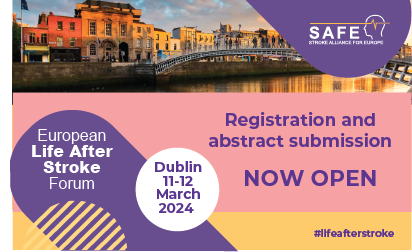
Our European Life After Stroke Forum event website is now LIVE
We are pleased to announce that our second in-person European Life After Stroke event website is now live, click here to view. Our registration and abstract submissions are also live.
Our Scientific Committee are in the process of confirming the final programme. Topics that we are likely to include are detailed below, but may be subject to change:
- What does a ‘good’ life after stroke look like?
- Reducing your risk of another stroke
- Practical tips to promote mental health
- Specific topics; managing fatigue and visual problems after stroke
We hope to see you in Dublin on the 11-12 March 2024!
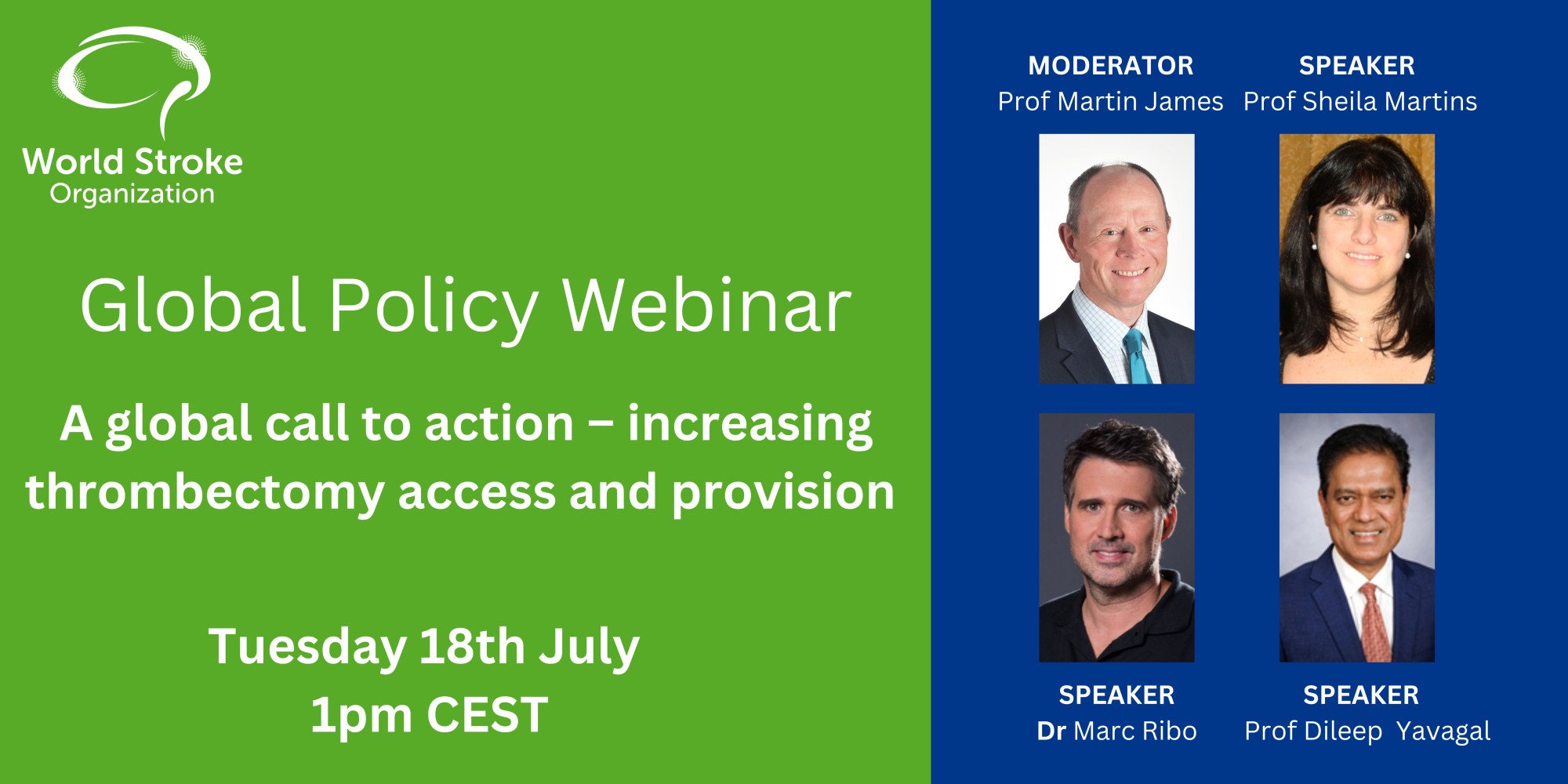
You are invited to a World Stroke Organization webinar
World Stroke Organization Global Policy Webinar
📅 Tuesday 18th July at 13.00 CEST
A global call to action – Increasing thrombectomy access and provision
Moderator: Professor Martin James
Speakers and topics:
1. Dileep Yavagal, SVIN
‘Understanding the global picture from policy to access’
2. Sheila Martins, WSO President
‘Developing stroke systems of care for thrombectomy in low-and-middle income countries’
3. Marc Ribó, Neurologist and Interventionalist
‘Organizing stroke care and measuring the results in a regional level: The experience of Catalonia’
Register here
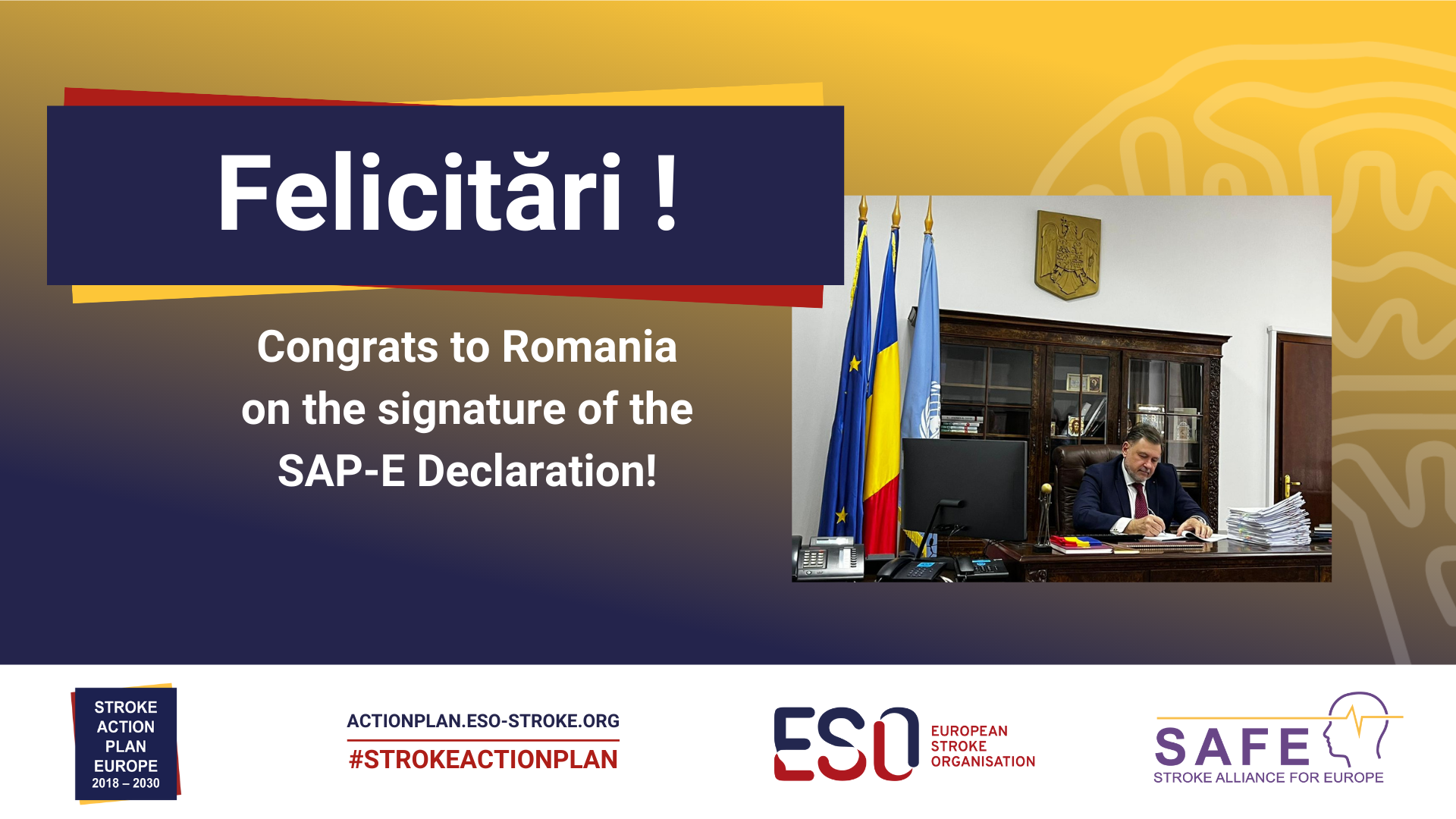
Romania signs the SAP-E declaration
We are very pleased to announce that Romania has pledged to enhance its stroke care by endorsing the Declaration for Action on Stroke and enacting the Stroke Action Plan for Europe.
This is a significant step toward guaranteeing the highest standard of care and support for stroke patients in Romania. (Photo: Minister of Health, Professor Dr. Alexandru Rafila)
To find out more about the Stroke Action Plan for Europe click here
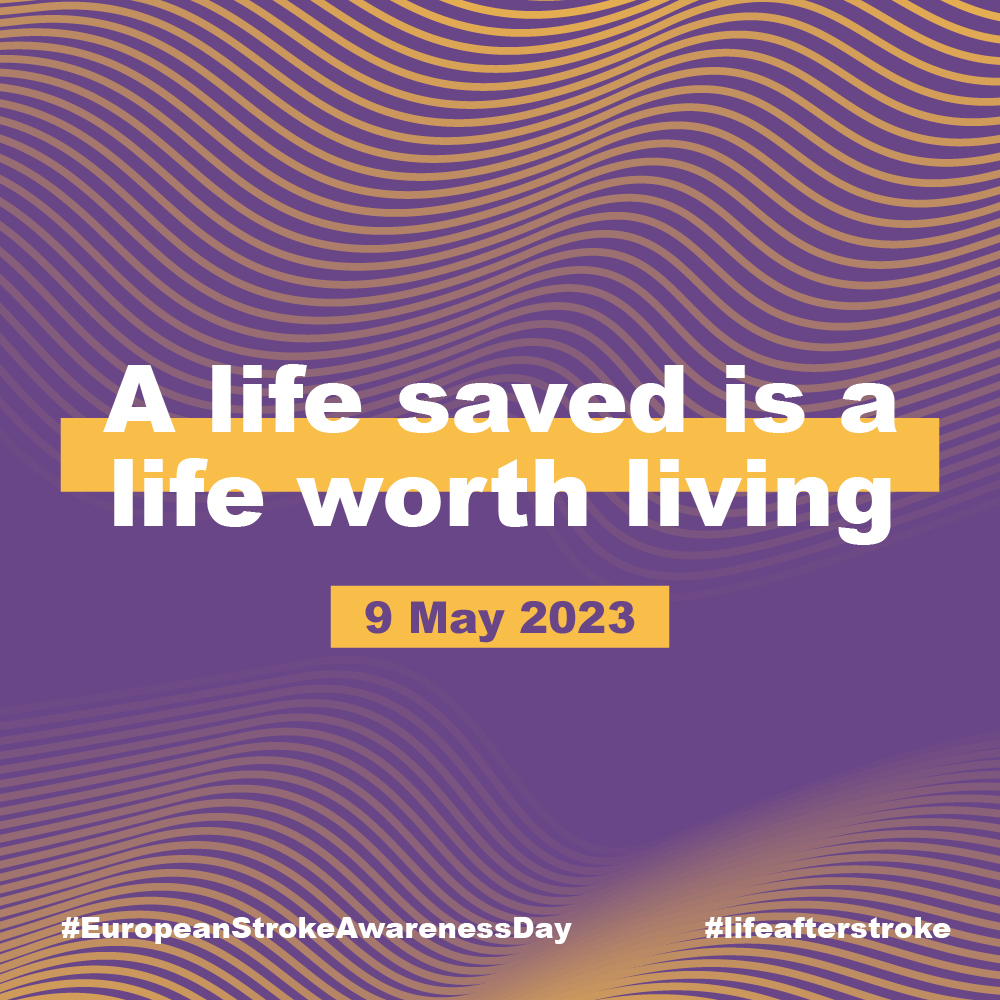
Needs of stroke survivors go neglected leaving many feeling suicidal
On European Stroke Awareness Day (9 May) we highlight how stroke survivors’ needs are being neglected and suffer as a result.
Our recent report, A life saved is a life worth living – the unmet needs of stroke survivors in Europe, reveals that one in eight stroke survivors has suicidal thoughts, around a third of stroke survivors will become clinically depressed in the years following their stroke and up to a quarter suffer ongoing problems with anxiety.
The report brings together for the first time, research in to over 80 unmet needs of stroke survivors in Europe. It concludes that more should be done to address the needs of the growing number of people surviving stroke.
Please read more here




